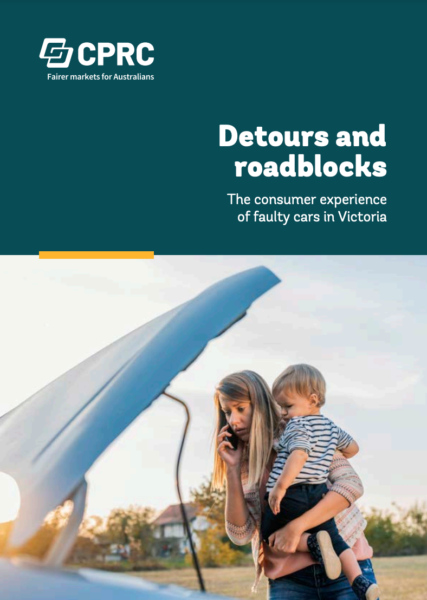September 27, 2022
Unfair business practices cause consumer harm but currently, there’s a gap in our laws to effectively protect Australian consumers. This report explores laws that ban or restrict unfair practices across Europe, United States, United Kingdom and Singapore. Also, highlights lessons Australia can learn from international approaches to implementing unfair trading laws and outlines the elements that Australia could consider when implementing an effective unfair trading prohibition.
The eight key lessons Australia can learn from international approaches:
CPRC recommends lawmakers to consider some key elements when developing unfair trading laws in Australia:


Empower regulators with adequate resources so they have the capacity to proactively assess and test the potential impact of an unfair practice before widespread harm has taken place.

Ensure there are provisions in place that allow the law to evolve over time and for regulators to specifically blacklist certain unfair practices as they emerge.

Hold businesses accountable for their actions and ensure penalties, fines and other enforcement actions adequately deter businesses from engaging in or continuing unfair business practices.

Provide individuals with meaningful access to redress from the harms they’ve experienced from unfair practices and ensure regulators consider redress as part of their enforcement initiatives.

Enable regulators to insist that practices found to be unfair by a business in other jurisdictions can be quickly addressed by the business in Australia too.

Consider the impact on mental health when mapping the spectrum of harms caused by unfair business practices.
Together, we have the opportunity to shape how Australian consumers today, and in the future, can be adequately protected and empowered to confidently participate in and reap the benefits of a fair, safe and inclusive market.
CPRC welcomes the opportunity to work further on this issue with government, regulators, policy makers, academia and the community sector.
If you are in one the above groups and would like a one-on-one briefing for your organisation, contact Chandni Gupta on chandni.gupta@cprc.org.au.

Chandni leads CPRC’s research stream on protecting consumers in a digital world. Her work to date includes exploring the consumer shift from the analogue towards the digital economy, the impact of deceptive and manipulative online design on Australian consumers and the key gaps that currently exist in Australia’s consumer protections.

October 31, 2023
Faulty cars are far too common and disrupt too many lives. This report delves deep into the repercussions of faulty cars on individuals' lives, examines the legal pathways available for those seeking remedies and explores the experience of First Nations people.

March 16, 2023
Australia’s privacy laws rely on notification and consent as the primary means of protecting consumers. The onus is on consumers to navigate complex privacy protections in a continuously complex digital economy. It is time to consider reforms that hold businesses accountable for how they collect, share and use consumer data. It is time to give regulators the power to pause and assess data practices that are causing or likely to cause consumer harm.